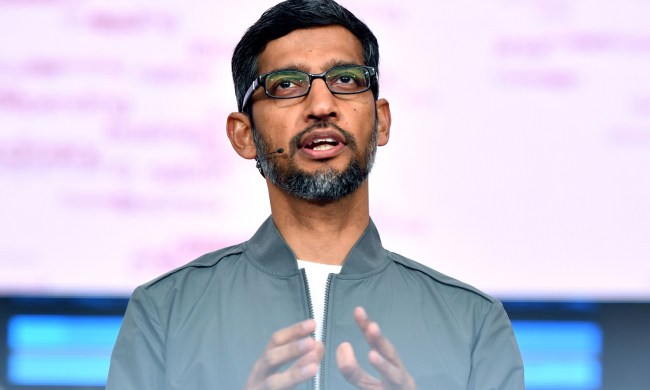Google is beating hospitals at their own game — at least when it comes to death risk assessment. Google’s Medical Brain team has begun training its artificial intelligence system to evaluate the risk of death among hospital patients, and results for the time being are more accurate than those provided by existing medical tools.
Google first detailed its new system in a paper published in the Journal Nature in May. At the time, company researchers noted, “These models outperformed traditional, clinically used predictive models in all cases. We believe that this approach can be used to create accurate and scaleable predictions for a variety of clinical scenarios.”
The results, of course, are rather morbid. Alas, Google’s algorithms aren’t looking for ways to save people — just how likely they are to beat the odds. In one major case study, Google used its A.I. to evaluate a patient with breast cancer. In the 24 hours after she was admitted to the hospital, Google’s system gave her a 19.9-percent chance of dying in the hospital, significantly higher than the 9.3 percent chance the hospital’s Early Warning Score submitted. Unfortunately, less than two weeks later, the patient passed away.
So how did Google do it? The A.I. examined the 175,639 data points found in the patient’s electronic medical records, which included interpreting and evaluating handwritten notes. As Google says, the inclusion of all this information is what differentiates this A.I. from previous approaches.
“In general, prior work has focused on a subset of features available in the EHR, rather than on all data available in an EHR, which includes clinical free-text notes, as well as large amounts of structured and semi-structured data,” Google’s paper reads.
In total, Google has analyzed 216,221 hospitalizations and 114,003 patients, which comes to more than 46 billion data points from all EHRs. And its results are particularly promising for healthcare professionals. Google’s ability to efficiently and accurately parse through stacks and stacks of data could be a real boon to hospitals, ultimately resulting in improved patient care.
Moving forward, Google wants to work on A.I. tools that can predict not only death risk, but also symptoms and diseases. The tech giant is no stranger to working in the healthcare industry, especially as related to prediction. Earlier in 2018, DeepMind worked with the Department of Veterans Affairs, examining its 700,000 medical records and predicting potentially fatal changes in patients’ conditions. And Google also wants to provide doctors with a voice recognition system that would cut down on the time-intensive practice of writing notes.


